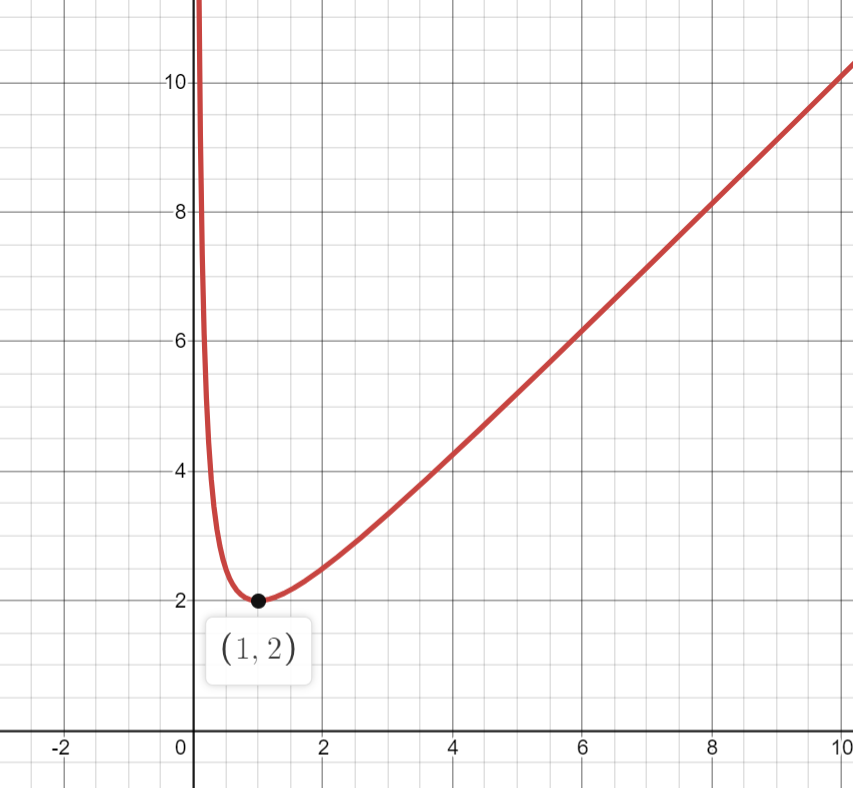Question
Question: If \(f(x) = x + \dfrac{1}{x}\) , \(x > 0\) then its greatest value is A) -2 B) 0 C) 2 D) No...
If f(x)=x+x1 , x>0 then its greatest value is
A) -2
B) 0
C) 2
D) None of these
Solution
To find the answer of the question, You have to differentiate a given function with equal to zero. Then find the value of x from the first differentiation. Then do a second differentiation and put a value of x In it and check whether the coming answer is negative or positive. If it’s negative then put that value of x in our main function and you will find the answer.
Complete step by step answer:
Let’s write given function once again,
⇒f(x)=x+x1
Now, differentiate our function with equal to zero to find the value for x and we will get,
⇒f′(x)=0
⇒f′(x)=1−x21=0
From further simplification we will get,
⇒x2=1
Find the value for x and we will get,
⇒x=±1
But, it’s given that x>0 so just consider positive value of x ,
So, value for x is
⇒x=1
Now, do second differentiation,
⇒f′′(x)=x32
Now, put value for x that we find from first differentiation,
⇒f′′(1)=132
From further simplification we will get,
⇒f′′(1)=2
See our second differentiation is positive in value so x is minimum at x=1
So, it’s clear that we could not find the maximum value for a given equation with condition x>0.
We can see the graph of the given function here for better understanding of the scenario:

So, the correct answer for this problem is option (D) None of these.
Note:
In this problem we have to find our maximum value, but what if they ask for the minimum value? so there is nothing new for that. You just have to do a second differentiation and check whether the coming value is positive or negative. If value is positive then at that value for x function have minimum value else if value is negative then at That value for x function have greatest value.
